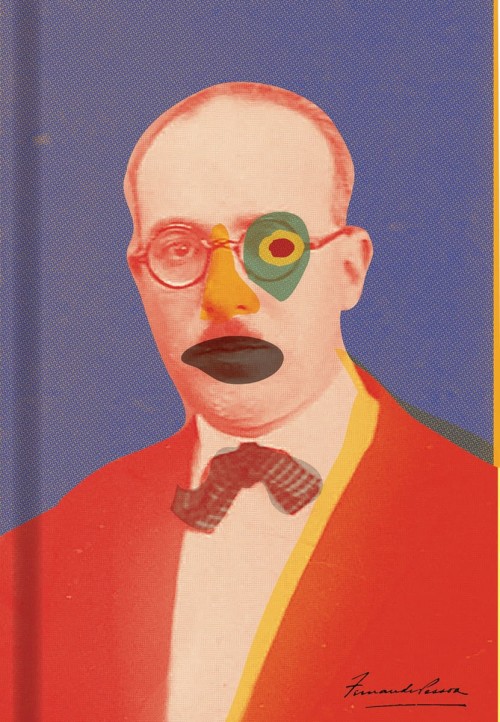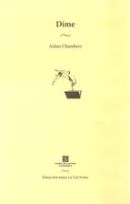This will be chatty, really an announcement of sorts.
There’s a new Disquiet in town. New Directions has published a new edition of The Book of Disquiet, and a beautiful book it is. My hat is off to its designer, Erik Rieselbach. At 16.95 American dollars, this hardcover is a steal (by the way, New Directions has been publishing great literature in beautiful editions for decades).

But the main reason I’m so excited is that for the first time in an English language version all of the texts that make up Disquiet are presented in chronological order of their composition. For that reason it is offered as the complete edition. All previous versions have been creations of their respective editors: they have been arranged as those editors saw fit, regardless of when the texts were written, and in each instance texts have been left out. The New Directions edition is newly translated by Margaret Jull Costa.
I have read the version by Richard Zenith and it is that version that all of my Pessoa entries are based on. Although I don’t plan to make a close comparison between this new edition and that one, I may want to write some more on this strange collection of texts their author called The Book of Disquiet as I read the whole thing in the order in which it was written.
I indulged myself with two other books: The Collected Poems of Frank O’Hara and the New Collected Poems of Marianne Moore edited by Heather Cass White. Having these three titans sitting by my side is just a bit overwhelming. I’m embarrassed to say I’ve never owned an O’Hara collection even though I feel very close to this poet. Like me his first love was music and like me the visual arts have been vital to his poetic outlook and also like me colloquial speech is very important in his poetry.
I feel a soul connection on the deepest level to Pessoa. I feel O’Hara artistically as a brother. My attraction to the Marianne Moore book is a little different. I am new to Moore and I feel that I should know more about her. I have a copy of the Complete Poems, the one sanctioned by Moore herself, and I have enjoyed dipping into it. But I was intrigued by the idea of this “new” collection because it’s really old. Readers haven’t had access to the original versions of many of these poems for decades. The photo on the jacket shows an elderly Moore, but it should show the younger one because it is the younger Moore, the pre-WWII Moore that White wants to rescue, or revive.
I’m troubled by that discrepancy between the jacket photo and what White wants to do, but not because there’s anything wrong with the project. I don’t think it requires justification. White, however, did. White says outright in her “Editor’s Notes”,
In its broadest terms this edition argues that although Moore’s omissions [she reworked many of her pre-war poems, often truncating them and left many more of them out of her “complete” edition] were not accidents, they were nevertheless mistakes. I think that Moore, in the later decades of her life, did her readers a lasting, and compounding, disservice by altering and suppressing the writing she published as a younger poet.
Wow. Because White felt a justification was required it’s as if I’m complicit with her because I bought the edition. But I am simply curious to know what Moore wrote then, as compared to how she changed those poems later. It may turn out that I, like White, will largely prefer the earlier versions over the later ones, I don’t know yet, but I would always argue in favor of having both, simply out of respect for the poet (and I will be dumbfounded if I don’t find some of the later versions improvements). It is White’s right to make her motivations and opinions known, but it’s more than a little creepy to say, in effect, Hey poet, the whole second half of your life was little more than one big mistake! This isn’t unprecedented. There’s a consensus that de Chirico’s early paintings are groundbreaking but the post-Surrealist stuff is little more than pablum. I’d be lying if I said I never chuckled at one of those later paintings, and I’ve scratched my head over them, but I’ve never had the sense that the man de Chirico became was not worthy of respect. I’m fascinated by the mind that could produce both bodies of work. Wouldn’t it have been more prudent of White to simply present the earlier versions as an obvious value in itself? Instead she has introduced the possibility of a controversy where one need not exist. There’s something inherently disrespectful in saying Moore made a colossal mistake for doing the work she clearly and diligently wanted to do. It need not have been said.
Perhaps that is why I wanted to pair these things today. The arrogance of editors. In the one case looking at Pessoa’s pile of papers and saying, No, this couldn’t possibly be considered a book; let me arrange it. In the latter case saying, No, the poet clearly didn’t know what she was doing; let me correct this. I would be the first to say I’m glad Raymond Carver ran into Gordon Lish, but editors, have a little humility please!
Advertisements Share this:- Share






